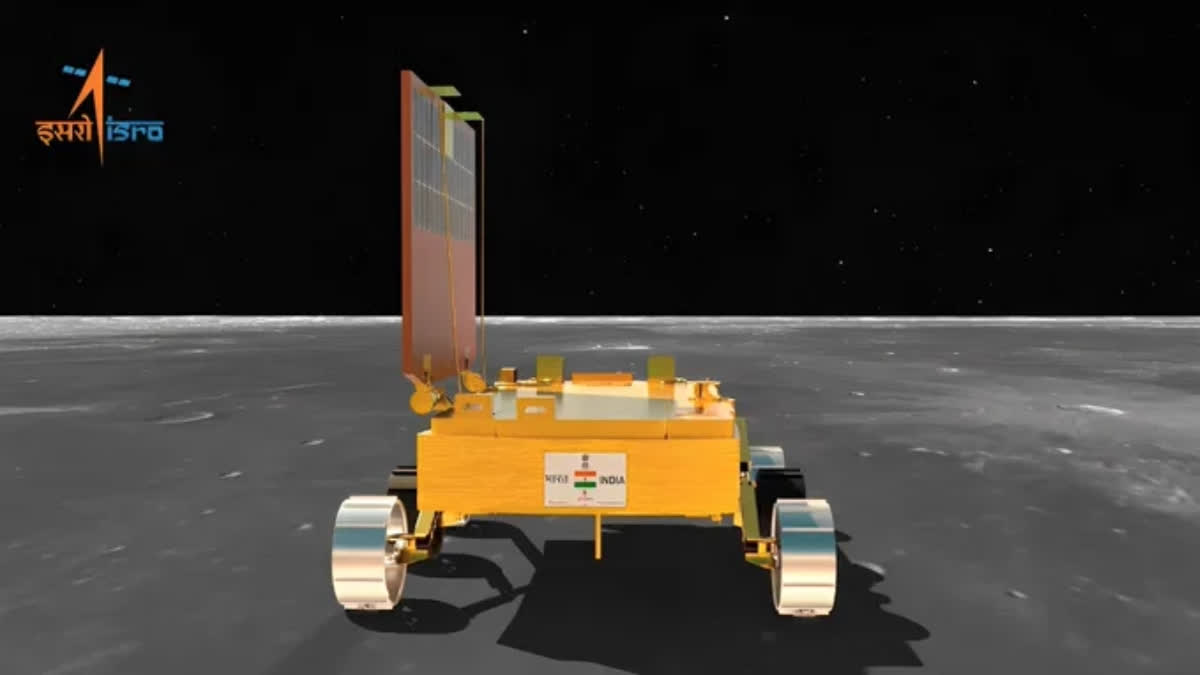Hyderabad: Two back-to-back spectacular successes of India’s state-owned space agency – the ISRO – have brought back the focus on the lucrative commercial aspect of the global space industry. The ISRO on Saturday successfully launched its first space-based solar mission Aditya L1 onboard its workhorse rocket PSLV-C. This success comes on the backdrop of India’s extraordinary feat as it successfully landed its Vikram lander and Pragyan rover near the south pole of the Moon, a first for any space-faring nation. With the success of its moon mission, the country joined the elite club of four nations — the USA, erstwhile Soviet Union, China and India that have successfully landed their payloads on the lunar surface.
Although the recent two feats are non-commercial in nature and are aimed at scientific research and discovery, they nonetheless cemented India as a credible and economical player in the global space market which has been estimated at nearly $400 billion per year.
Just a month ago, India had successfully launched seven Singaporean satellites in space in a picture-perfect mission on July 31. The primary payload 352 kilogram DS-SAR satellite was built by Israel’s state-owned high technology company Israel Aerospace Industries (IAI) for its Singapore customers ST Engineering. And within minutes of successfully injecting the DS-SAR into its orbit, the PSLV-C56 rocket also placed six other smaller Singaporean satellites in their orbits.
With the July launch of Singaporean satellites, the ISRO completed the successful launch of 431 satellites from 34 countries in space, clearly demonstrating the country’s credibility in the lucrative space launch segment.
Global space market
According to the studies conducted by top financial institutions such as CitiBank and Morgan Stanley, the global space industry, which includes satellite fabrication and launch services, was estimated at around $380 billion in 2021. The global space market is expected to grow to $ 1trillion by 2040.
Despite its proven track record, the global space industry is dominated by advanced economies such as the USA, European Union, Japan, and Russia. In addition to state-owned agencies such as the NASA of the USA, European Space Agency (ESA) and JAXA of Japan, private companies such as Boeing, Lockheed Martin, Raytheon Technologies, French companies such as Thales, and Israel’s IAI are key players in the lucrative satellite fabrication market while companies such as Elon Musk’s Space-X is in the launch market in addition to several private and state-owned entities from the US, Europe and Japan.
A $100 billion opportunity for India
Despite the spectacular track record of India’s space agency the ISRO, the country only has two percent market share in the global space market. India’s domestic space industry has been estimated at around $8 billion which has been growing at the compound annual growth rate of four percent per annum as against the global growth rate of 2 percent per annum.
The government is targeting a 10 percent market share in the global commercial space market by the end of this decade.
A recent report by a consultancy firm Arthur D Little says that India can achieve a much greater market share in the global space market than what has been currently anticipated.
According to the agency, the ISRO stands out as a great brand ambassador for the country in the commercial space market due to its impressive track record.
In order to tap the country’s potential; the government established NewSpace India Limited (NSIL) in 2019 to provide launch vehicle, and satellite fabrication services and also to provide technology and consultancy services in the space sector. Realizing the scope for the private players, the space sector was opened for private players in 2020.
As a result, as per some estimates, nearly 85% components of India’s rocket which carried Chandrayaan-3 in space were sourced from private players.
In 2020, the government also helped in setting up a nodal industry body — Indian National Space Promotion and Authorisation Centre (IN-SPACe) under the leadership of defence and aerospace industry veteran Jayant D Patil.
The road ahead
India aims to emerge as a world leader in component manufacturing and satellite fabrication in addition to providing world-class launch services at an affordable cost.
However, it lacks some basic building blocks to emerge as a space sector powerhouse such as it lacks the semiconductor manufacturing in the country which the government aims to change by encouraging local packing and fabrication of semiconductors in the country.
Also read: After Moon & Sun, ISRO readies mission to enhance science understanding in Astronomy




